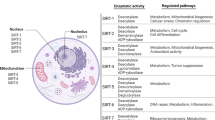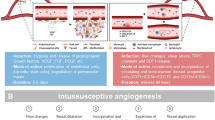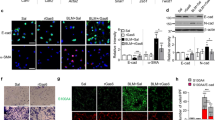Abstract
The anti-inflammatory activities of P53 in the vasculature have been associated with the enhancement of the endothelial barrier function. In the present study, we employed human and bovine lung endothelial cells, to investigate whether P53 expression levels affect the redox status of pulmonary cells. Moreover, we tested the possibility that those events affect the endothelial integrity of the lung microvascular monolayers. Our observations suggest that P53 suppression by LPS, pifithrin, or small interfering RNA increased the expression of the redox marker malondialdehyde. In contrast, P53 induction by Nutlin or the Hsp90 inhibitor AUY922 exerted the opposite effects, namely, suppressed that lipid oxidation marker. The direct measurement of the reactive oxygen species by 2,7-Dichlorodihydrofluorescein diacetate confirmed the antioxidant activity of P53 in the vasculature. Furthermore, the increased reactive oxygen species production due to P53 suppression was associated with lung hyperpermeability responses. In conclusion, P53 supports endothelial barrier function, at least in part, via the modulation of the reactive oxygen species.



Similar content being viewed by others
References
Barabutis, N. 2019. Unfolded protein response in acute respiratory distress syndrome. Lung 197 (6), 827-828.
Matthay, M.A., R.L. Zemans, G.A. Zimmerman, Y.M. Arabi, J.R. Beitler, A. Mercat, M. Herridge, A.G. Randolph, and C.S. Calfee. 2019. Acute respiratory distress syndrome. Nature Reviews. Disease Primers 5 (1): 18.
Uddin, M.A., and N. Barabutis. 2019. P53: The endothelium defender. Journal of Cellular Biochemistry. 2019; https://doi.org/10.1002/jcb.28511.
Barabutis, N. 2019. Unfolded protein response supports endothelial barrier function. Biochimie 165: 206–209.
Uddin, M.A., et al. 2019. P53 supports endothelial barrier function via APE1/Ref1 suppression. Immunobiology 224 (4): 532–538.
Akhter, M.S., M.A. Uddin, and N. Barabutis, Unfolded protein response regulates P53 expression in the pulmonary endothelium. Journal of Biochemical and Molecular Toxicology, 2019;33(10):e22380.
Mundi, S., et al. 2018. Endothelial permeability, LDL deposition, and cardiovascular risk factors-a review. Cardiovascular Research 114 (1): 35–52.
Wang, T., Y. Shimizu, X. Wu, G.T. Kelly, X. Xu, L. Wang, Z. Qian, Y. Chen, and J.G.N. Garcia. 2017. Particulate matter disrupts human lung endothelial cell barrier integrity via rho-dependent pathways. Pulm Circ 7 (3): 617–623.
Barabutis, N., C. Dimitropoulou, C. Birmpas, A. Joshi, G. Thangjam, and J.D. Catravas. 2015. p53 protects against LPS-induced lung endothelial barrier dysfunction. American Journal of Physiology. Lung Cellular and Molecular Physiology 308 (8): L776–L787.
Karki, P., and K.G. Birukov. 2019. Rho and reactive oxygen species at crossroads of endothelial permeability and inflammation. Antioxidants & Redox Signaling.
Ortega, M.A., et al. 2019. Patients with incompetent valves in chronic venous insufficiency show increased systematic lipid peroxidation and cellular oxidative stress markers. Oxidative Medicine and Cellular Longevity 2019: 5164576.
Song, J., et al. 2019. Stretching magnitude-dependent inactivation of AKT by ROS led to enhanced p53 mitochondrial translocation and myoblast apoptosis. Molecular Biology of the Cell 30 (10): 1182–1197.
Wang, P., et al. 2019. ROS -mediated p53 activation by juglone enhances apoptosis and autophagy in vivo and in vitro. Toxicology and Applied Pharmacology 379: 114647.
Madrigal-Matute, J., et al. 2012. HSP90 inhibition by 17-DMAG attenuates oxidative stress in experimental atherosclerosis. Cardiovascular Research 95 (1): 116–123.
Ozgur, R., B. Uzilday, Y. Iwata, N. Koizumi, and I. Turkan. 2018. Interplay between the unfolded protein response and reactive oxygen species: A dynamic duo. Journal of Experimental Botany 69 (14): 3333–3345.
Funding
Dr. Barabutis research is supported by (I) R&D, Research Competitiveness Subprogram (RCS) of the Louisiana Board of Regents through the Board of Regents Support Fund (LEQSF(2019–22)-RD-A-26) (P.I: N.B); (II) National Institute of General Medical Sciences of the National Institutes of Health (5P20GM103424–15, 3P20GM103424–15S1); (III) Malcolm Feist PAC Seed Program, Center for Cardiovascular Diseases and Sciences, LSU Health Shreveport, Shreveport, LA 71103; and (IV) Faculty Research Support Program award of the College of Pharmacy, University of Louisiana Monroe, Monroe LA 71201.
Author information
Authors and Affiliations
Corresponding author
Ethics declarations
Ethical Approval
This article does not contain any studies with human participants or animals performed by any of the authors.
Conflict of Interest
The authors declare that they have no conflict(s) of interest.
Additional information
Publisher’s Note
Springer Nature remains neutral with regard to jurisdictional claims in published maps and institutional affiliations.
Publisher’s Note
Springer Nature remains neutral with regard to jurisdictional claims in published maps and institutional affiliations.
Rights and permissions
About this article
Cite this article
Akhter, M.S., Uddin, M.A. & Barabutis, N. P53 Regulates the Redox Status of Lung Endothelial Cells. Inflammation 43, 686–691 (2020). https://doi.org/10.1007/s10753-019-01150-7
Published:
Issue Date:
DOI: https://doi.org/10.1007/s10753-019-01150-7




